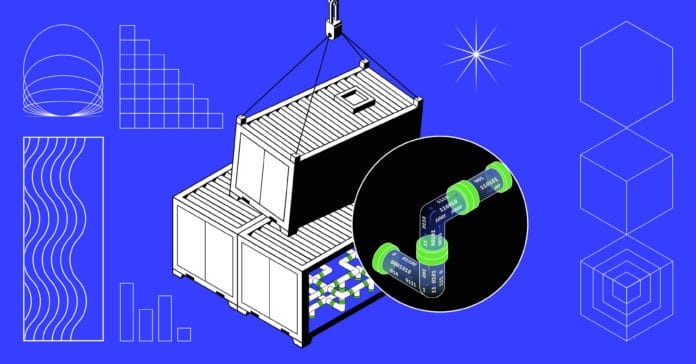GitLab spun out Meltano, an ELT (extract, load, transform) service that is now aiming to become a more fully featured “DataOps” service, almost exactly a year ago. GitLab, which had built the service to improve its own data lifecycle platform, Alphabet’s GV, and a number of angels invested $4.2 million in seed funding at the time. The company announced today that it has raised an additional $8.2 million, bringing its seed round total to $12.4 million. Venrock led the new round, which also included GV, Uncorrelated Ventures, Data Tech Fund, and a number of angel investors.
According to Meltano CEO and GitLab veteran Douwe Maan, the original plan for Meltano was to create an end-to-end data platform, but the team narrowed its focus back to ELT between 2020 and 2021, with the Singer open source ELT tool serving as its core component. With this new funding and the release of Meltano 2.0 today, the 17-person company is returning to its original vision of becoming an end-to-end platform.
Maan stated that when the team first brought Meltano to market, they discovered that convincing businesses to replace their entire data stack was difficult. Instead, the team decided to concentrate on an ELT service that could serve as a simple drop-in replacement for existing tools such as Fivetran.
“Now we’re seeing that people who have come on board and think of Meltano as a component in their stack, are asking us to essentially expand this role to take over the management of all of these different components rather than just the Singer connectors for ETL and dbt for transformation,” Maan explained. “It was a matter of making it a more easily understandable and accessible value proposition. Now that we have reached maturity on the ELT side, we have earned the right to start expanding the value impact we want to have on people’s data work.”
That strategy appears to be working, as Meltano now counts Netlify, Zapier, and, unsurprisingly, GitLab among its users. Nonetheless, the company is currently pre-revenue and remains focused on its open source offering. The company intends to offer a hosted version of the service in the future, as do many other open source companies. However, as Maan also pointed out, while the company achieved product-market fit with its ELT tool, it is now going back to the drawing board to achieve the same stage with its end-to-end platform — which is also why the team decided to extend the seed round.
GitLab has clearly influenced a large portion of Meltano’s DNA. Meltano, like the company from which it arose, publishes a handbook with a roadmap, for example, and is, of course, remote-only. The Meltano team, like GitLab, believes that it must build its tools in close collaboration with its users, and that in order to do so, the company must be highly transparent. Meltano also recently moved its projects from GitLab to GitHub in order to be closer to its community members and better engage them. That’ll make for an awkward dinner conversation at the next GitLab get-together, but GitHub is simply the de facto standard for open source development.
Meltano differs from GitLab in that it heavily relies on third-party open source projects, whereas GitLab has always focused on building things in-house. “Everything in GitLab was built first in-house and first party,” he said. “It has its own Git hosting, issue tracker, and continuous integration/continuous deployment.” We’re constructing a layer beneath that, which will include these existing, best-in-class third-party components, with Meltano adding intermediate tissue and abstracting away many of the differences between these components.”
Meltano initially attempted to emulate the GitLab model, but now the company wants to embrace these third-party products and integrate them into a unified service. According to Maan, the data stack has shifted away from end-to-end tools like Informatica and toward a world where many tools excel at a single stage of the lifecycle. However, that cohesive developer experience is no longer available. In practise, this means that, in addition to Singer and dbt, the company employs Airflow for scheduling and workflow orchestration, Great Expectations for data quality assurances, and Superset for data exploration and visualisation.





































































